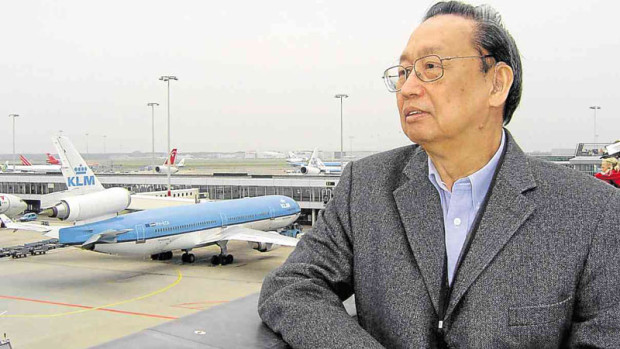
COMING HOME Jose Maria Sison, founding chair of the Communist Party of the Philippines, is expected to return to the Philippines under a Duterte presidency after nearly 30 years of exile in The Netherlands. CONTRIBUTED PHOTO
Communist Party of the Philippines (CPP) founder Jose Maria Sison said the move toward reconciliation would extend not only to the government, through the incoming administration of presumptive President-elect Rodrigo Duterte, but also to those who broke away from the CPP in the 1990s.
“The government of national unity, peace and development proposed by the NDFP (National Democratic Front of the Philippines) is inclusive,” Sison said, in reply to an online interview question on whether his move toward reconciliation also extended to his former comrades identified with the CPP’s “rejectionist” (RJ) faction.
RJ and RA rift
“Past differences can be overcome by current resolutions which are good and forward-looking toward a better and brighter social system,” said the CPP founder now based in Utrecht, The Netherlands.
Sison did not elaborate.
In the early 1990s, the CPP and its armed wing, the New People’s Army, were rocked by differences over strategy and tactics that caused serious division among the party’s top leadership and its members and allied groups.
Those who challenged Sison’s leadership were called “rejectionists,” or RJ, while those who stayed with the CPP founder were called “reaffirmists,” or RA. The rift led to the killing of several known leaders from both factions.
The reaffirmists of Sison wanted to continue its main tactic of protracted people’s war, while the rejectionists led by workers’ leader Filemon “Popoy” Lagman clamored for armed insurrection in the cities to grab power.
Lagman had critiqued Sison’s book “Philippine Society and Revolution” and argued that Philippine society was capitalist in a backward and underdeveloped way, rather than being semifeudal and semicolonial as Sison had contended.
Lagman believed that a workers-led revolution in the city must be waged to dismantle capitalism, rather than a protracted people’s war from the countryside.
The RJ groups and some NDFP leaders later declared autonomy from the CCP, resulting in a split that decimated the number of the party’s supporters and fighters.
http://newsinfo.inquirer.net/786401/joma-also-extends-welcome-to-rejectionists

No comments:
Post a Comment
Note: Only a member of this blog may post a comment.